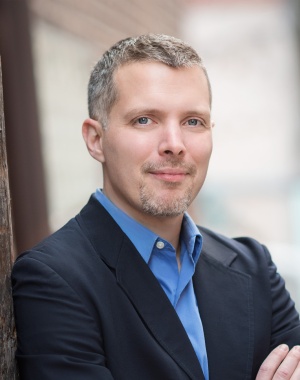The Network of Schools of Public Policy, Affairs, and Administration (NASPAA) has awarded the Gerald R. Ford School of Public Policy with its 2020 Social Equity Award, which honors a public policy, affairs, or administration program that exemplifies the highest standards in social equity through outstanding contributions in research, teaching, and service.
The award recognizes Poverty Solutions, a University of Michigan-wide initiative housed at the Ford School. Launched in 2016, Poverty Solutions builds on the Ford School’s and the University of Michigan’s decades-long legacy of commitment to and strength in social policy and anti-poverty scholarship and teaching.
Read the news here.
Transcript:
I am honored to accept NASPAA's
2020 Social Equity Award on
behalf of the Gerald R. Ford
School of Public Policy.
The Ford School is a community
dedicated to the public good,
committed to taking on
our community's and the world's
most pressing challenges.
Structural inequality
is an urgent
challenge as Black and Brown
Americans continue to face
differential outcomes and
experiences in education,
in health and housing,
economics and finance,
and so much more.
In the past year, we've added
three new endowed
professorships that will
support research and
action to address
social and structural injustices.
Poverty Solutions led by
Professor Luke Shaefer,
is vital to our work
in social equity.
Since 2016, Luke and
his team have connected our
top-flight students and
faculty with communities around
Michigan and across
the United States.
At Poverty Solutions, we
partner with communities and
policymakers to find
new ways to prevent
and alleviate poverty.
We try to build on basic
research on the causes and
consequences of poverty, really
to figure out what
can be done about it.
We understand that we don't
have all the answers.
Sometimes we don't even know
the right questions to ask.
But if we work with communities,
if we partner,
if we start with listening,
and we work with
policymakers to figure out
how things can really
be implemented.
We can learn and we can
make meaningful change.
So in our work and the Partnership on
Economic Mobility at the City of
Detroit, at the state level
in our work with
the Department of
Health and Human Services,
and in advising
national policymakers.
But a big part of
that is trying to
bring social equity to the fore.
Have it not be sort of
our priorities and what we
see as the biggest issues,
but those of the communities
that we're seeking to serve.
At the Ford School,
we're committed
to researching, teaching,
and speaking out about
structural inequality and doing
the hard work to advance social change.
Thank you NASPAA for
this recognition of
the Ford School's work to
advance social equity.
We know there is still
much more to be done.
